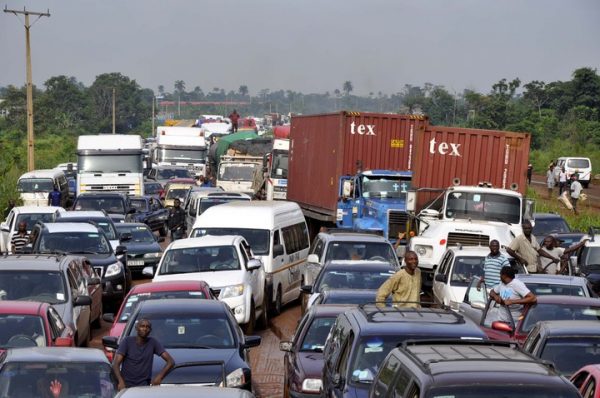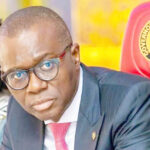Experts and stakeholders in the public transport sector on Wednesday blamed the federal and state governments for the chaotic traffic situation in Lagos, which has caused the people huge social and economic losses.
They said the experience with traffic gridlock in the state was principally a failure of policy and called for a more holistic approach to addressing the issue.
- Lagos police arrest suspected cult gang leader, Iron man, 8 others
- Lagos to empower 1m students in digital skills
The stakeholders spoke at a Transportation and Traffic webinar with the theme, ‘The Never-Ending Story, Traffic Congestion in Lagos: What Can Be Done? Will it Be Done?’
The virtual discussion was put together by the United States
Consulate in Nigeria, with the Director of Public Works in the City of Minneapolis in the United States, Robin Hutcheson, delivering the keynote address.
According to a transportation expert, Patrick Adenusi, 250,000 vehicles were caught in “avoidable” Lagos traffic daily. He said if each of the vehicles expended N1,000 on extra fuel above what should have been spent on the journey, that would amount to N250 million wasted daily.
One of the participants at the session, Mr Frank Aigbogun, who is the publisher of the Business Day newspaper, recalled how armed robbers attacked him in Lagos traffic, saying the intractable traffic situation in the state was symptomatic of policy failure on the part of the government.
“This has become a defining symbol for Lagos over the years and it is the responsibility of both the federal and Lagos State governments to provide a safe and conducive environment for businesses to operate,” Aigbogun said.
Hutcheson said improvements in mass transportation would directly contribute to economic growth, a healthier environment and improved customer satisfaction.
She explained that traffic congestion, principally due to automobile traffic, could take a huge toll on the citizenry’s mental and physical health.
Hutcheson suggested that a model transportation action plan could include options like sidewalks, motorcycle/bicycle lanes, ferries, buses and light rail.
“Under any plan, the responsible agencies must engage their communities, ask them what they want, understand the issues, identify the opportunities and pursue funding and implementation together,” Hutcheson said.
The U.S. Consul-General, Claire Pierangelo, said residents needed efficient and safe transportation systems to enhance their economic survivability.
“We believe this topic of Lagos traffic is very important due to its impact on economic development and daily quality of life. Lagos is the economic capital of Nigeria and it is important that we tackle the transportation and traffic difficulties,” Pierangelo stressed.

 Join Daily Trust WhatsApp Community For Quick Access To News and Happenings Around You.
Join Daily Trust WhatsApp Community For Quick Access To News and Happenings Around You.


